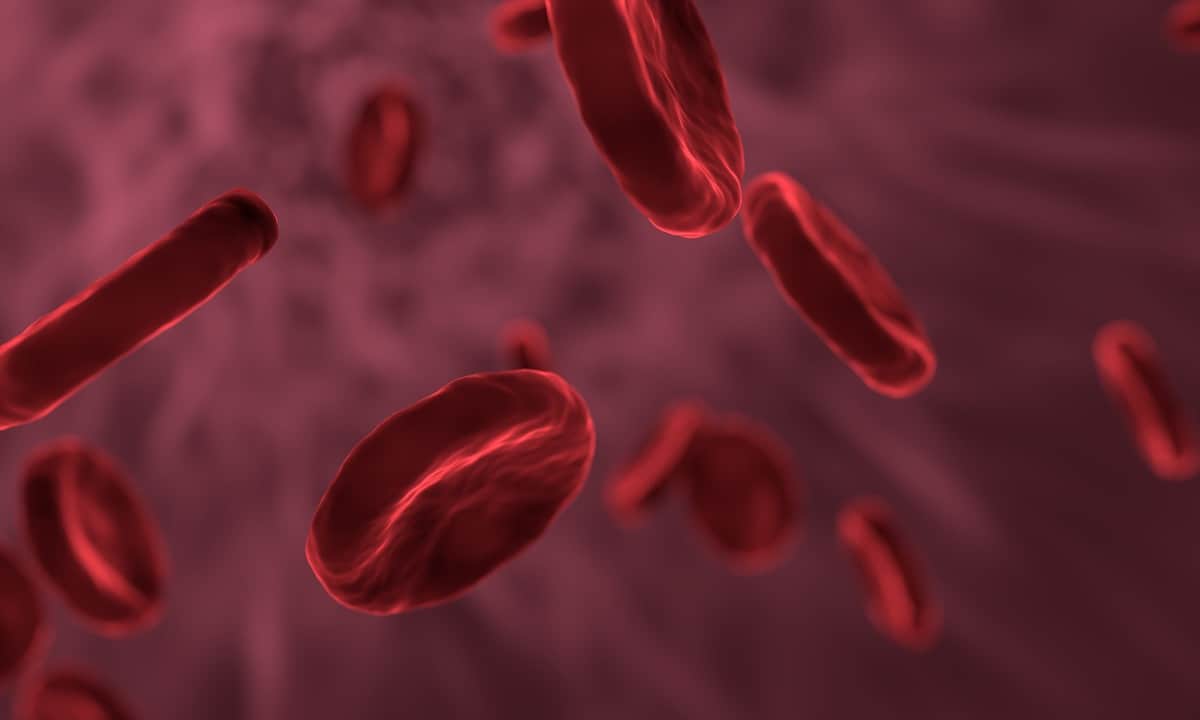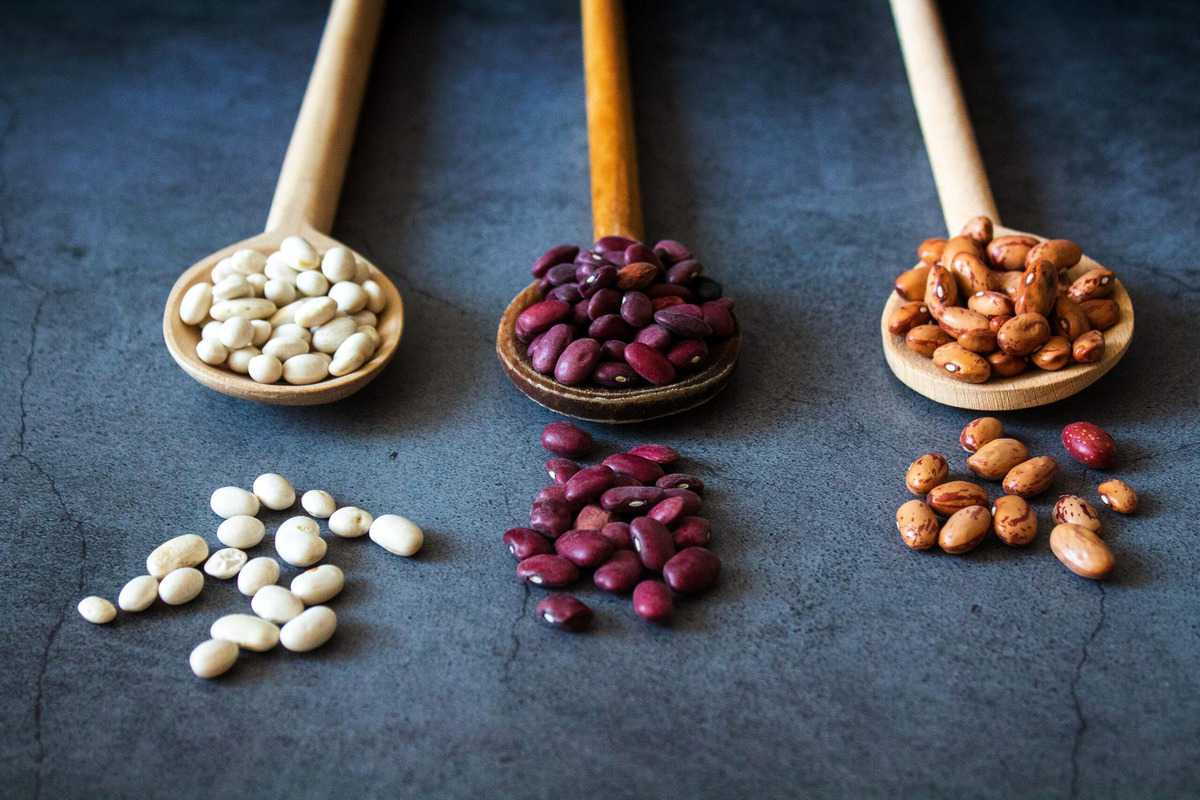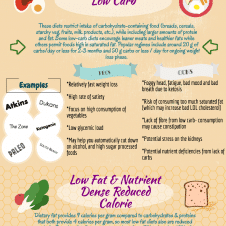We take a look at the research on the blood type diet to find out if eating according to your blood type is the key to improving health and lowering the risk of disease.

Most of us only think about our blood type when we’re looking to donate or receive blood. That is, until 2021 when the “Blood Type Diet” got another go as a popular weight loss trend. According to naturopathic doctor, Peter J D’Adamo, eating according to your blood type may just be the thing to improve our health and decrease our risk of disease.
D’Adamo first popularized the idea of the “blood type diet” back in 1996 with the release of his book “Eat Right for Your Type”. The diet has since continued to gain traction among celebrity wellness circles as the secret to health and longevity and is now making waves in the influencer world. But is there really a connection between your diet and your blood type? And is the blood type diet really the secret to improving our health and preventing disease? We dive into the research to find out.
What is a “Blood Type”?
If you have never donated blood before, or you have been fortunate enough to have never received a blood transfusion, then your knowledge of blood types may or may not be a bit murky since high school health class.
To summarize, everyone has a genetically determined blood type, and they fall into four categories: O, A, B, and AB. The “Rh factor” will also determine if your type is positive or negative. The main purpose of knowing your blood type is to ensure that your blood type is compatible with who you donate blood to and/or who receive blood from.
What is the Blood Type Diet?
When it comes to the blood type diet, the theory is that different blood types process foods differently and that following a specific diet can improve digestion, maintain our body weight, increase energy levels, improve mental clarity, and prevent disease. With that said, what does this mean for each blood type? Let’s break it down.
Type A – “The Cultivator”

According to the blood type diet, if you have blood type A you should consume a predominately meat-free, plant-based diet. This includes consuming a variety of fruit, vegetables, legumes, and whole grains while also emphasizing organic and fresh foods.
The rationale behind following a plant-based diet for this blood type is that people with type A have “sensitive immune systems and an increased risk of developing heart disease, cancer, and diabetes”.
Type B – “The Nomad”

Unlike the type A diet, type B blood types are encouraged to consume plants AND meat while also consuming small amounts of dairy. This diet, however, is less of an eating pattern and more of an arbitrary list of foods that you can and cannot eat. This includes eating green vegetables, eggs, low-fat dairy, and certain meats such as goat, lamb and rabbit. They should also avoid foods like corn, wheat, buckwheat, lentils, tomatoes, peanuts and sesame seeds. The rationale for being permitted to consume a somewhat wider variety of foods compared to the type-A diet is because B blood types have a “stronger immune system and tolerant digestive system”, meaning that they are apparently able to survive chronic diseases better than other blood types. Mmmkay.
Type O – “The Hunter”

Those with an O blood type are to consume a high protein diet, because according to D’Adamo these types have higher levels of stomach acid and a greater ability to digest protein and fat. They should therefore prioritize lean meat, poultry, fish, fruit and vegetables while also eating smaller amounts of grains, beans and dairy.
Type AB – “The Enigma”

Lastly, D’Adamo recommends that AB blood types consume tofu, seafood, dairy, and green veggies. He also claims that AB types have low stomach acid and should therefore consume smaller, more frequent meals while also avoiding smoked and cured meats, caffeine, and alcohol. In addition, he also recommends that AB types benefit from food combining and should therefore avoid starches and proteins in the same meal. This will help these types to “digest and metabolize foods more efficiently”. Now, I am not going to get into a whole spiel about how problematic food combining is, but if you are interested in my evidence-based take down, you can read all about food combining right here.
What Does the Research Say?

According to D’Adamo, he wrote his book based on “decades of ongoing research”. It appears that since the release of his book over two decades ago, that this research might still be ongoing (?) as the existing research on blood type diets is well… pretty scarce. There have only been a few studies (more specifically, three), that have looked at the health impacts of eating for your blood type. So, let’s take a closer look at the results.
Study #1
A 2013 systematic review looked at 16 studies to determine whether adhering to a specific diet according to blood type can improve health and lower disease risk. Since the research in this area is very limited, only one out of the 16 studies identified met the study’s selection criteria. This study compared changes in cholesterol between different blood types in response to a low-fat diet.
While the study outcomes did show improvements in cholesterol levels according to blood types, it’s important to mention that this study did not characterize their group by the ABO blood type (which is what D’Adamo uses). Rather, they categorized groups by MNS blood types which is functionally different from ABO.
As a result of the differences in blood type categorization, the study results did not answer the research question and therefore the authors concluded that there was no evidence suggesting that eating for your blood type is beneficial. However, there does exist evidence to suggests that certain blood types are more vulnerable to some disease. But more on that later.
Study #2
Another 2014 study with 1455 participants looked specifically at the ABO blood type diet developed by D’Adamo. This study found that those following the Type-A diet (a predominately plant-based diet) had better health outcomes. This included improvements in weight, cholesterol, and blood sugar management. However, the same health impacts were observed in an unmatched blood type group. This suggests that the health benefits of following the Type-A diet (aka plant based) are not exclusive to people with blood type A. This is something we already know! Eating more plants is healthy for everyone, not just those with Type A blood.
This study also found that those following the Type-O diet (a high protein diet) had lower triglyceride levels. However, the researchers concluded that this improvement in triglyceride levels was not related to the person’s blood type, specifically. Rather, it was a result of the low carb nature of the diet which has been shown to lower triglyceride levels. Meaning, whether or not someone has blood type O or any other blood type, their triglycerides levels will likely decrease by following a low carb diet.
Overall, the study concluded that the majority of individuals would benefit from the Type-A diet regardless of their blood type, as the health benefits of consuming a predominately plant-based diet are well documented. The same can be said about following the low carb Type-O diet and its effect on triglyceride levels. Therefore, the positive health impacts observed in this research study were unrelated to blood type and had more to do with the quality of the diet in general.
Study #3
Lastly, a more recent 2020 randomized control trial looked at 244 overweight individuals to determine whether the effects of a low-fat plant-based diet on specific health outcomes (including body weight, cholesterol, and blood sugar) was associated with blood type. All participants were assigned the same diet, regardless of blood type. The dietary intervention was similar to the diet that D’Adamo recommends for blood type A and recommends against for blood type O.
The researchers found that an individual’s blood type made no difference in their health outcomes when adhering to a plant-based diet. Similar to the second study mentioned, this study concluded that plant-based diets are equally beneficial for most individuals, regardless of their blood type. This is especially true when it comes to heart health and weight loss. This study also found no evidence to suggest that high-protein diets are beneficial for one blood type over another.
Is There a Link Between Blood Type and Disease Risk?

While there is no current research to suggest that certain blood type groups will benefit from specific diets (although, D’Adamo’s research is still “on going” so the verdict may still be out on that front) – there does exist some research to suggest that certain blood types may make individuals more or less susceptible to some diseases.
Most of the research in this area has looked at the link between blood types and heart disease. For instance, several studies suggest that individuals with any blood type other than O (that is type A, B, or AB) have an increased risk of coronary heart disease, with one study showing that these groups are 11% more likely to develop heart disease compared to O blood types. Similarly, another study found that individuals with blood type O have a 15% reduced risk of coronary artery disease compared to other blood types. Moreover, some evidence suggests that individuals with blood type A tend to have higher cholesterol compared to other groups.
While type O may be seemingly fare better when it comes to heart disease, other research has shown that type O blood types have an increased risk of developing type 2 diabetes compared to blood type B.
With all of this in consideration, while we know that there IS a link between diet and heart health, we ALSO know that there are many risk factors for heart disease that go beyond your blood type. So, for example, if you have an O blood type but you also smoke, have a sedentary lifestyle, don’t manage your stress, consume alcohol in excess, and you don’t eat a heart healthy diet – these risk factors can increase the likelihood of developing heart disease regardless of your blood type.
Therefore, it is important to focus on healthy behaviours throughout the lifespan rather than looking at your blood type or anything else you can’t control as a sole indicator of health (because it certainly is not). On that note, if you are interested in more information on my top tips for eating a heart healthy diet, you can check out my blog post.
What’s the Deal with Lectins?

Now, before we put the blood type diet to bed, there is one last point of contention that we need to touch on and that’s lectins. According to D’Adamo, when we consume foods containing lectins, a chemical reaction occurs in the blood that causes blood cells to clump together which can lead to “hormonal disruptions”. D’Adamo claims that certain people with different blood types will react differently to particular foods and their lectins, which has informed some of his dietary recommendations.
However, there is no research to date to suggest that lectins affect people in specific blood groups differently. In fact, research has shown that lectins do not cause any “clumping” of the blood like D’Adamo suggests.
Lectins (which are found in many foods such as grains, nuts, seeds, and legumes) have gained a pretty bed rep because they are an “anti-nutrient” – meaning, they can interfere with the digestion and absorption of nutrients in the body. However, the benefits of consuming lectin-containing foods far outweigh any potential adverse effect on our health. In fact, approximately 30% of our food is considered to have lectins, many of which are wholesome plant-based foods that are rich in antioxidants, fibre, vitamins and minerals.
Therefore, eliminating a whole class of healthy and beneficial foods while following the blood type diet is not necessary. Especially when these recommendations are based on “theory” without any strong evidence to back up these claims. If you want to learn more about anti-nutrients and lectins, you can read all about it in my blog posts on anti-nutrients and lectins.
Pros and Cons on the Blood Type Diet

Now that we have covered what the blood type diet looks like and what the existing research has to say, what are the main takeaways from this diet? Let’s break down the pros and cons.
Pros
Despite the arbitrary dietary restrictions on the blood type diet, each diet is low in processed foods and added sugars, while also prioritizing lean proteins, fruits, and vegetables. As previously mentioned, the majority of individuals would benefit from following the plant-based diet suggested for the type-A groups.
In addition, one might naturally lose weight following the blood type diet. However, weight loss outcomes would likely not be significantly different from any other calorically restrictive diet.
Cons
In addition to the lack of research backing the blood type diet, the dietary recommendations are not very cost effective as D’Adamo recommends a lot of specialty and organic foods on the diet.
The dietary recommendations are also very specific and inflexible as they don’t really allow for personal taste preferences. For instance – someone on the AB-type diet who is lactose-intolerant and dislikes seafood is pretty much sh*t outta luck with tofu as their only source of protein (which also sounds incredibly boring).
Moreover, the blood type diet gives no consideration to health conditions and only makes recommendations based on a persons blood type. For instance, if an individual has diabetes, IBS, or lactose intolerance, their specific blood type diet would not be tailored to their condition and it may or may not be more restrictive as a result.
Most importantly, there is a serious lack of evidence to suggest that there is any benefit to eating according to your blood type. So, it is better to find a flexible and sustainable way of eating that works for you and your needs, rather than living your life according to a random list of foods you can and cannot eat.
Bottom Line
Overall, the current claims behind the blood type diet are based on theory and not so much on strong evidence. Therefore, more research is definitely needed to better understand any potential benefits of the blood type diet. While it is definitely possible for individuals to experience some health benefits from following select blood type diets (namely the type-A plant-based diet), current research suggests that this more so has to do with the quality of the diet itself rather than an individual’s blood type. With that said, I wouldn’t go rushing to find out your blood type or buy D’Adamo’s book so that you can follow a bogus set of eating rules.
Written by Giselle Segovia RD MHSc
More Blog Posts You Might Like
- A Heart Healthy Diet: Top 10 Foods According to a Dietitian
- Saturated Fat and Cholesterol 101
- Are Vegetable Oils Unhealthy?
- The “Sugar Feeds Cancer” Myth vs Facts
Updated on March 22nd, 2021

Abbey Sharp is a Registered Dietitian (RD), regulated by the Ontario College of Dietitians. She is a mom, YouTuber, Blogger, award winning cookbook author, media coach specializing in food and nutrition influencers, and a frequent contributor to national publications like Healthline and on national broadcast TV shows.





Melanie says
Thank you so much for this detailed analysis! I was recently the recommended the O blood type diet by a naturopath, and found the list of “avoid” foods very restrictive. I wanted to know the science behind the blood type diets. I will continue to eat what feels good for my body. Thanks Abbey and Giselle Segovia!
Beri says
Please confirm if, for Type B, chicken and pork is allowed.
Abbey Sharp says
According to D’Adamo, yes! Regardless though, I wouldn’t strictly follow any of these diets- as the article says, the bottom line is that there isn’t strong enough evidence to support this diet yet.
Brittanni Young says
I am reading the book right now and it definitely says No to Chicken and Pork for Type B. Where are you getting your information?
Abbey Sharp says
Hi Brittanni, thanks for pointing out that error. I just updated the blog post!